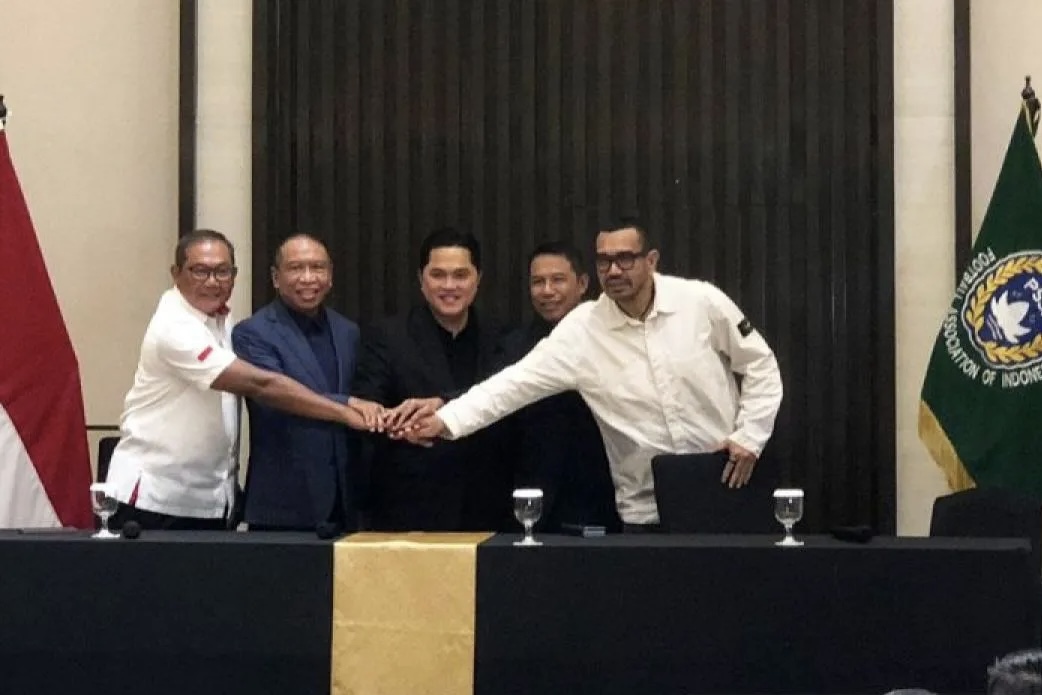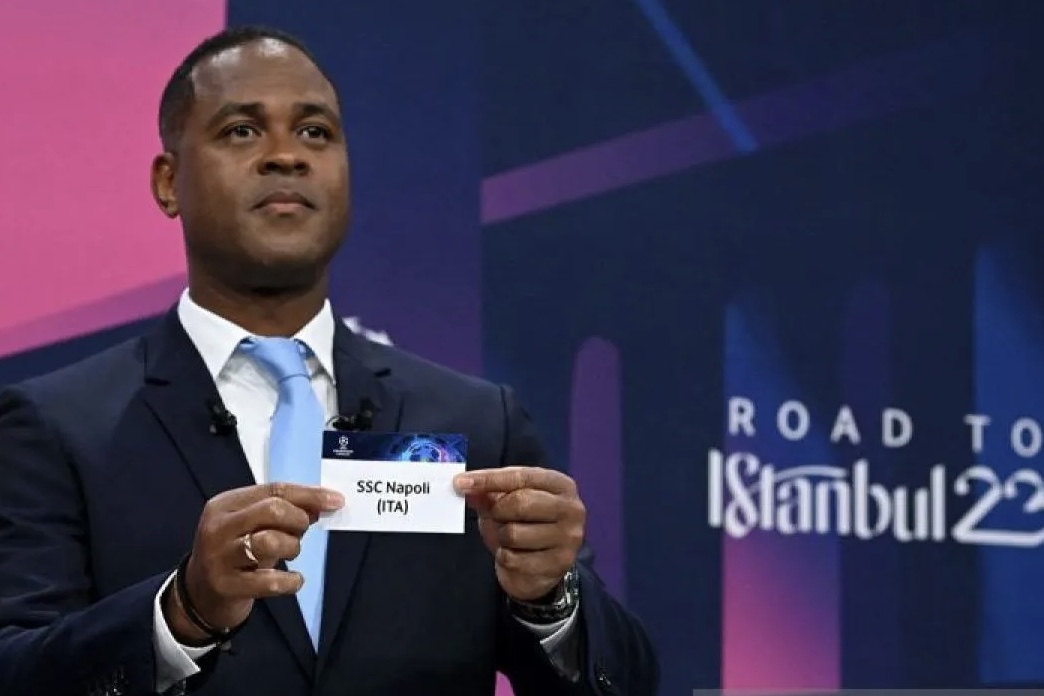
The Architect of a New Dawn: Shin Tae-yong and the Resurgence of Indonesian Football
For decades, Indonesian football has been a land of paradoxes: a nation of over 270 million fervent fans, yet consistently underperforming on the international stage. A sleeping giant, often stirring but never quite waking, plagued by internal strife, inconsistent development, and a perceived lack of professionalism. This narrative of unfulfilled potential began to shift dramatically with the arrival of a South Korean tactical mastermind, Shin Tae-yong, in December 2019. More than just a coach, Shin has become the architect of a new dawn, systematically dismantling old habits and laying the groundwork for a professional, competitive, and truly modern Indonesian national team.
Shin Tae-yong’s appointment was not just another coaching change; it was a statement of intent from the PSSI (Football Association of Indonesia). They were not merely seeking a temporary fix but a long-term transformation. His resume spoke volumes: a successful playing career in the K-League, a decorated stint as coach of Seongnam Ilhwa Chunma, and crucially, experience at the highest level of international football, having led South Korea at the 2018 FIFA World Cup, where they famously defeated reigning champions Germany. This blend of club success and international pedigree made him an unlikely, yet perfectly suited, candidate to tackle the unique challenges of Indonesian football.
The Herculean Task: Inheriting a Troubled Legacy
Upon his arrival, Shin Tae-yong inherited a national team in disarray. The senior squad was struggling, youth development was fragmented, and the overall footballing culture often prioritized short-term results over sustainable growth. Players were widely perceived to lack the physical conditioning necessary for modern high-intensity football, and tactical discipline was often rudimentary. Beyond the pitch, the administrative landscape was complex, with frequent changes in leadership and internal politics often overshadowing genuine footballing progress.
Shin’s initial assessment was blunt but honest. He immediately identified the core issues: a severe deficit in physical fitness, a lack of tactical understanding, and a pervasive mindset that needed to shift from individual brilliance to collective effort. He also recognized the immense, untapped talent pool and the boundless passion of the Indonesian supporters, which he saw as a powerful, yet underutilized, resource.
A New Philosophy Takes Root: Discipline, Fitness, and Youth
Shin Tae-yong’s tenure has been characterized by three foundational pillars: uncompromising discipline, rigorous physical conditioning, and a steadfast commitment to youth development.
Firstly, discipline became non-negotiable. Shin is known for his strict regimen, both on and off the pitch. He demanded punctuality, professionalism, and an unwavering commitment to the team’s objectives. This extended to diet, sleep, and even social media use, aiming to instill a high-performance athlete’s mindset. This cultural shift was initially met with resistance from some players accustomed to a more relaxed environment, leading to a necessary, albeit sometimes painful, culling of those unwilling to adapt.
Secondly, physical conditioning was tackled head-on. Shin implemented intensive training camps, often sending players abroad for extended periods to focus solely on fitness. He brought in a team of highly qualified fitness coaches and sports scientists, utilizing data-driven approaches to track player performance and recovery. The transformation has been remarkable; Indonesian players, once prone to fatigue in the latter stages of matches, now regularly outrun and outwork their opponents, demonstrating improved stamina, strength, and resilience. This physical robustness has been crucial in enabling them to implement Shin’s demanding tactical systems.
Thirdly, and perhaps most significantly, Shin embraced youth development as the cornerstone of his long-term vision. He famously dismantled the existing senior squad, opting to build a new team around a core of promising young talents, many of whom were still teenagers. He simultaneously coached the U-19, U-23, and senior national teams, creating a seamless pathway for young players to transition through the ranks. This integrated approach allowed him to identify and nurture talents like Marselino Ferdinan, Pratama Arhan, Rizky Ridho, Witan Sulaeman, and Ernando Ari, integrating them into the senior squad at remarkably young ages. These players, now household names, represent the future of Indonesian football and are a direct result of Shin’s trust in youth and his patient, long-term approach.
On-Pitch Transformations and Early Successes
Shin’s philosophy quickly began to manifest on the pitch. While immediate trophy success remained elusive, the transformation in playing style was undeniable. Indonesia, traditionally known for individual flair but tactical naivety, began to play with a newfound tactical sophistication. Shin introduced a flexible system, often employing a high-pressing, aggressive style of play, combined with quick transitions and disciplined defending. His teams are no longer just reactive; they are proactive, dictating the tempo and imposing their will on opponents.
Under Shin, Indonesia has achieved several notable milestones:
- AFF Championship 2020 (played in 2021): Despite being one of the youngest squads in the tournament, Indonesia reached the final, narrowly losing to Thailand. This performance, against more experienced teams, signaled the arrival of a new, exciting generation.
- SEA Games 2021 (played in 2022): The U-23 squad secured a bronze medal, a testament to the progress in youth development.
- AFC Asian Cup 2023 Qualification: This was perhaps the most significant achievement. Indonesia qualified for the AFC Asian Cup for the first time in 16 years, and for the first time ever via qualification rather than as hosts. This historic feat underscored the team’s progress and ability to compete at a higher continental level. The subsequent performance at the Asian Cup, where they advanced to the knockout stages for the first time, further solidified this progress.
- FIFA World Cup 2026 Qualifiers: Indonesia has shown strong performances in the initial rounds, including historic victories and drawing against stronger opponents, putting them in contention for further progression, a dream once considered impossible.
Beyond these results, Shin has also strategically utilized the naturalization of players with Indonesian heritage, such as Rafael Struick, Ivar Jenner, Justin Hubner, and Sandy Walsh. Crucially, these players are not simply quick fixes but are integrated into his tactical system, bringing European-level experience and further enhancing the squad’s quality and depth, without undermining the development of local talents.
The Road Ahead: Challenges and Aspirations
Despite the significant strides, the journey is far from over. Shin Tae-yong faces ongoing challenges that will determine the ultimate success of his project:
- Consistency: Maintaining high performance levels across different competitions and against varying opponents is crucial.
- Depth: While the first XI has improved dramatically, building depth across all positions, especially given the physical demands of Shin’s system, remains vital.
- Domestic League Quality: The quality of the Liga 1, Indonesia’s top domestic league, needs to improve significantly to consistently produce players capable of competing at the international level. This requires better coaching, infrastructure, and financial stability within the clubs.
- PSSI Support: Continued, unwavering support from the PSSI, both financially and structurally, is essential for Shin’s long-term vision to fully materialize. This includes investing in infrastructure, coaching education, and youth academies across the country.
- Managing Expectations: The passionate Indonesian fanbase can be both a blessing and a curse. While their support is immense, unrealistic expectations can place undue pressure on the team. Shin must continue to balance ambition with a realistic understanding of the long-term process.
Beyond the White Lines: A Cultural Shift
Shin Tae-yong’s impact extends far beyond match results. He has instilled a new sense of professionalism and belief within Indonesian football. He has shown young players that with dedication, hard work, and discipline, they can compete with the best. He has raised the bar for what is expected of an Indonesian national team player.
His presence has also inspired a new generation of coaches and administrators to rethink their approaches to player development and team management. The discussions around Indonesian football are no longer just about individual talent but about systematic development, physical preparation, and tactical acumen – a direct reflection of Shin’s influence. He has brought a sense of national pride and unity through football, galvanizing a nation around a shared dream.
Conclusion
Shin Tae-yong is not just the coach of the Indonesian national team; he is a transformative figure, a catalyst for change. He arrived in a country hungry for footballing success but lacking the blueprint. Through his unwavering discipline, scientific approach to fitness, and courageous commitment to youth, he has begun to rewrite the narrative of Indonesian football.
The road to becoming a consistent regional powerhouse, let alone a contender on the Asian stage, is arduous and long. There will be setbacks and moments of frustration. However, under Shin Tae-yong’s guidance, Indonesia is no longer just dreaming of success; it is actively, diligently, and systematically working towards it. The sleeping giant is not fully awake yet, but it is stirring with renewed purpose, its eyes firmly set on a brighter, more competitive future, meticulously crafted by the architect of its new dawn.


